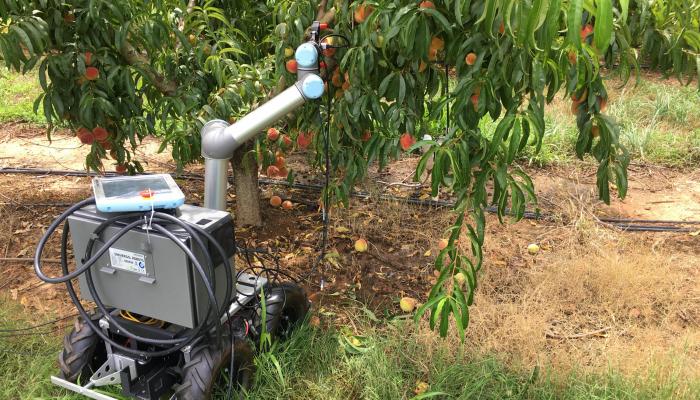As of Friday 15th October, employers of Authorised Workers are obliged to know their workers’ vaccination status if the worker is unable to work from their usual place of residence, and act accordingly. Below is the information provided by AgVic. Not all questions are answered as AgVic is seeking clarification on many issues raised by industry around the Directions. The Frequently Asked Questions links below will be updated regularly.
Employer must collect, record, and hold vaccination information about their workers on or before 15/10/2021.
COVID-19 Vaccines - Your Questions Answered - Prof Ben Cowie on Vimeo
Changes have been introduced to slow the spread of COVID-19 by reducing the number of people leaving their homes and moving around Victoria.
You cannot leave your home other than for one of the six following reasons:

Peaches, not surprisingly, pack a punch for Georgia’s economy.
Over 130 million pounds of peaches are produced in Georgia per year, and the Southern staple has a total farm gate value of over $71 million, according to recent estimates.
But cultivating peaches is a complex and manually-intensive process that has put a strain on many farms stretched for time and workers. To solve this problem, the Georgia Tech Research Institute (GTRI) has developed an intelligent robot that is designed to handle the human-based tasks of thinning and pruning peach trees, which could result in significant cost savings for peach farms in Georgia.
“Most folks are familiar with the harvesting of fruit and picking it up at the market,” said Ai-Ping Hu, a GTRI senior research engineer who is leading the robot design project. “But there’s actually a lot more stuff that gets done before that point in the cultivation cycle.”
By using a LIDAR remote sensing system – which determines distances by targeting an object with a laser and measuring the amount of time it takes for the laser beam to reflect back – and a highly-specialized GPS technology that measures locations as specific as a fraction of an inch, the robot is able to self-navigate through peach orchards while steering clear of obstacles. Once at a peach tree, the robot uses an embedded 3D camera to determine which peaches need to be removed, and removes the peaches using a claw-like device, known as an end effector, that is connected to the end of its arm. - Read more of this Fruit Growers News article.
© Summerfruit Export Development Alliance